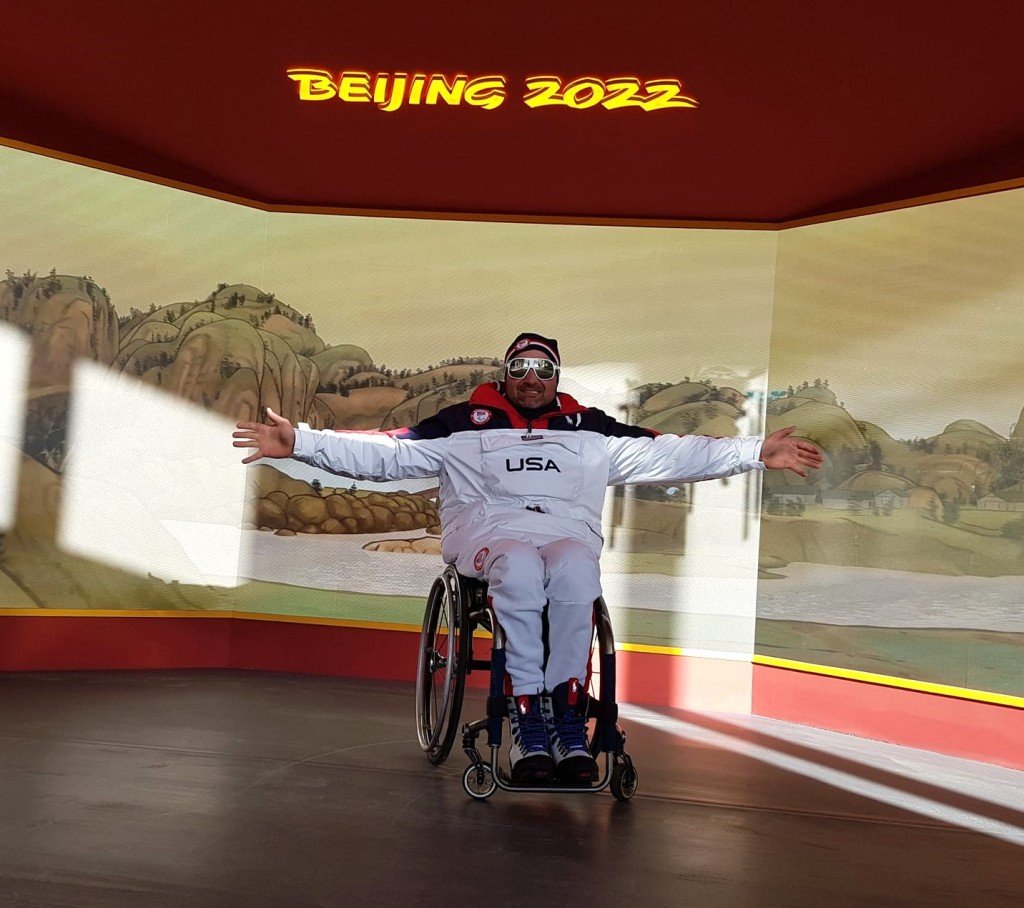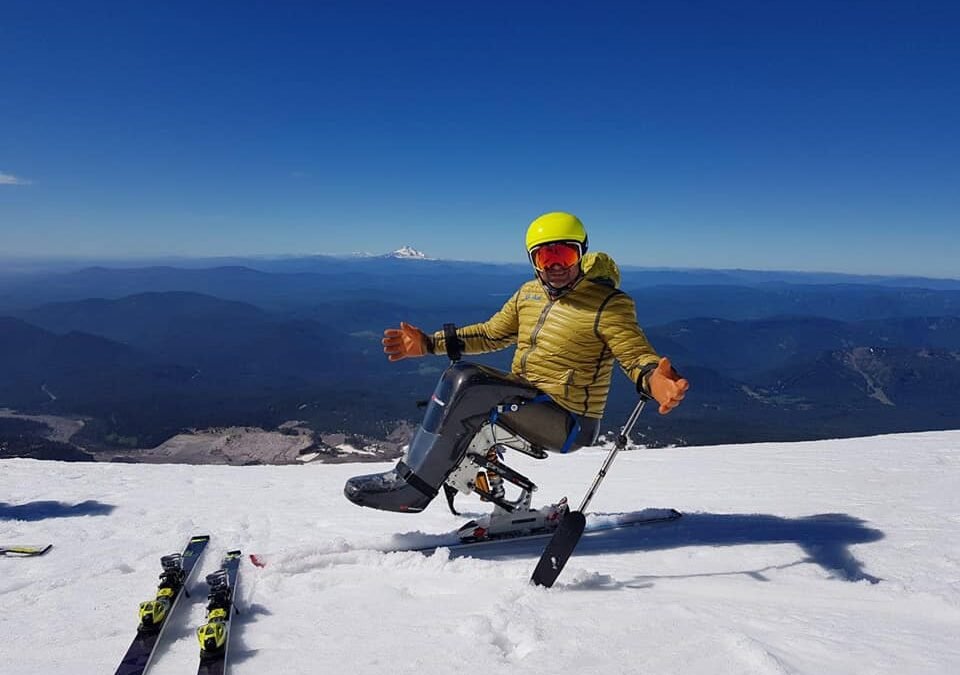By Michael Kinney
For more than a decade, Jasmin Bambur has been a regular at the Paralympic Winter Games — competing at each of the last four.
While Bambur, 42, has not been able to bring home a medal, the Serbian-born alpine sit skier counts himself as a winner for everything he has been able to accomplish.
“This career has had a lot of ups and downs to become a four-time Paralympian,” Bambur said. “It’s a lot of dedication, a lot of injuries and stuff you really don’t want to deal with. But when you sum it up altogether, it was absolutely wonderful.”
Years of perspective have gotten Bambur to this point. But that was not his mindset when the journey began back in 2000. At the time he was a member of the U.S. national handball team and a student at Middle Georgia College. One night he fell asleep while driving, and while not wearing a seatbelt.
According to Bambur, he drove off the road and was ejected out of the car. The car rolled on top of him and broke his back and injured his spinal cord. The accident left him paralyzed from the waist down.
That is where Bambur’s Olympic handball dreams ended.
Looking back, Bambur said he was depressed and suicidal. However, there was a physical therapist at the Shepherd Center in Atlanta who wouldn’t allow him to wallow in sorrow and continually tried to help him even though he didn’t want it.
“I kept telling her, ‘You need to leave. I literally don’t want to talk to you or anybody else. Just put me out of my misery.’” Bambur said. “But she was kind of persistent at it and joking with me all the time. She was explaining to me that there were other things than sports in life and I kept blowing her off.”
Then one day the physical therapist showed Bambur her photo album that included pictures of her and her husband, who was in a wheelchair.
“I asked her, ‘You are so attractive, why would you pick a guy in a wheelchair to be your husband? You have so many other walking guys. You are crazy,’” Bambur said. “She said, ‘You don’t choose who you fall in love with. He is super cool and does all kinds of fun stuff.’”
The next day, her husband came to visit Bambur at the rehab center. It turned out to be Bert Burns, a wheelchair racer who won a gold medal in the 4×400-meter at the 1992 Paralympics in Barcelona.
After hearing about all the activities and competitions Burns was involved in, despite having quadriplegia, a switch flipped inside Bambur.
“I was like hell, if this guy can do it, I can do it 10 times better,” Bambur said. “Literally the next morning I told them to put me into anything you can. The rest is history.”
Bambur learned to compete in several different sports. They included basketball, tennis and water skiing.
But it was when Bambur picked up alpine skiing that he found his new calling. Just 10 years after his injury left him a broken man on the side of the road, Bambur made his first Paralympic team for the 2010 Vancouver Games.
“Vancouver was awesome, and I was representing my home country of Serbia,” Bambur said. “We were young and inexperienced. Funding was very limited and really couldn’t do what we wanted to do.”
By the time the 2014 Games in Sochi arrived, Bambur was competing for the U.S.
“That was one of those moments in life when you are on top of the world, but the medals still kind of managed to slip away from you,” Bambur said. “But that’s the beauty of the sport and competing at the highest level, anybody can win at that point. I was so excited to chase it and perform but ended up seventh.
“But as far as the Games, the organization, how everything was presented to us, and just Sochi itself, it was my favorite Paralympic Games that I have.”
Unfortunately for Bambur, that was not the case during his fourth Winter Games, which were held in Beijing under the full cloud of the COVID-19 pandemic.
“Beijing was very different. I was telling some of my teammates who were there for the first time, that they really didn’t experience what the Games are all about,” Bambur said. “Interaction with local people, and experiencing the place, was very limited because of COVID. There were hazmat suits and just how everything was running.”
In Beijing, Bambur took eighth in the slalom, which was the second-best finish of his Paralympic career. He also grabbed 16th in the giant slalom.
It is possible that Beijing could be Bambur’s final Paralympics. After almost two decades of competing, he is looking to focus on other areas of his life.
“My situation is different than your regular Olympic-Paralympic athletes. I have a big family, we’re running a business with my wife,” Bambur said. “I love life. I love parties. I am most likely going to slow it down a little bit and spend some time with the family.”

With a 12-year-old daughter who has developed a passion for downhill racing, Bambur said they are in the process of helping her achieve her goals in Colorado.
“I have raced for about 18 years and with my schedule, I am gone nine months out of the year,” Bambur said. “My wife, she pretty much ran the show and raised three beautiful girls by herself. I don’t think that is fair for her. I told her when we get through these Games, let’s slow it down a little bit and get ready for the next cycle. So I am probably going to take some races off my schedule this year.”
Whether Bambur makes it to another Paralympics or not, he has already come further than he ever would have imagined just two decades ago.
“This career has had a lot of ups and downs to become a four-time Paralympian,” Bambur said. “It’s a lot of dedication, a lot of injuries and stuff you really don’t want to deal with. But when you sum it up altogether, it was absolutely wonderful.”
Michael Kinney Media-Content Provider
IG: mkinneymedia
Twitter: MKinneyMedia
Youtube: Michael Kinney Media

